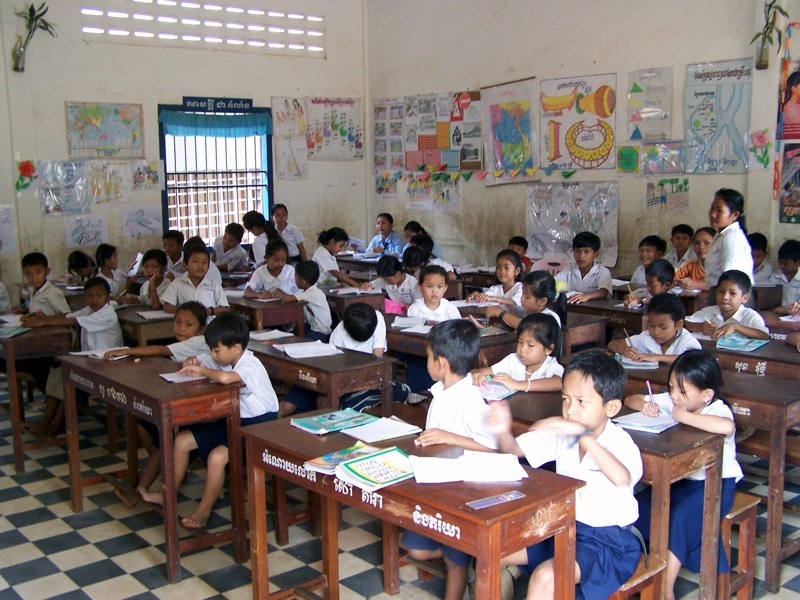When I agreed to take over as Executive Director of the Roy Rosenzweig Center for History and New Media back in July, one of the first things I did was speak to our faculty, staff, and graduate students about my philosophy of management, which is actually pretty simple-minded. As I told our folks, my first priority is that everyone at RRCHNM would be safe. My second priority is that everyone be healthy. And my third priority is that we do interesting work that drives the field forward and makes us feel good about our results. If those three conditions are met, we’re doing what we need to be doing.

I can’t take credit for this philosophy of management. I stole it from the principal of a K-4 school outside of Siem Reap, Cambodia (pictured here) where I was doing some volunteer work in 2007. The principal of that school told me that his philosophy was that his students and teachers would be safe, healthy, and could then teach and learn as they needed. That struck me as a good philosophy and I’ve followed it every since.
Who knew that my values would be so severely tested in my first year in the position? Right before the semester started we all received text messages telling us there was an active shooter on campus and that we should flee, hide, or fight. No sooner had we herded ourselves into our offices and under our desks than we got the all clear. Oh, so sorry. The vendor who manages our warning system sent that message in error. It was super annoying, but at least everyone was safe.
And now this. Covid-19. We’ve shifted to remote work, staying in touch as best we can via videoconference, project management platforms, email, text and social media. Trying to recreate the generative environment of our dev table and our project meetings is going to prove to be a major challenge. For all our digitality, we do our best work when we are sitting close together and talking. But at least, for now, we’re all healthy.
For each of us, times like these are a test. A test of what we value. A test of what we believe. A test of our coping skills. A test of the systems we’ve created to support our people and our work. And a test of who we are. The digital humanities community, a community I’ve been a proud member of since the late 1990s, is one of the most vibrant, most resilient communities I’ve ever been privileged to be part of. We’ll make it through this crisis and we’ll learn some things about our colleagues, ourselves, our systems, and our community that we didn’t know before. Most of those things will be good. Some won’t.
But in the end, if we’re safe and healthy, the opportunities to do interesting work will still be there.